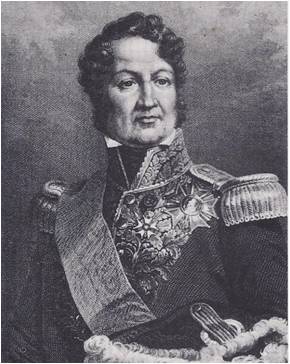AFTER THE fall of Napoleon, Louis XVIII came to the throne of France. Although his powers were limited, by following a middle-of-the-road policy he was able to rule peacefully until his death in 1824. His brother, Charles X, then became king and soon began using his influence to undo as much of the French Revolution as possible. He was able to have laws passed which required the government to pay large sums of money every year to the nobles whose land had been taken from them during the revolution. The Catholic Church was strengthened and once again priests began teaching …
Read More »Tag Archives: Marquis de Lafayette
The French Revolution – Champion of Liberty 1782 – 1789
WHEN THE MARQUIS DE LAFAYETTE returned to France in 1782, after taking part in the American Revolution, he was hailed as a popular hero. It was pleasant to be welcomed as a champion of liberty, but he had been in America so long that he was beginning to see his own country as an American might see it and he was troubled. France was one of the largest and richest countries in Europe and yet the wealth of the nation was in the hands of a few, while the great majority of the people had almost nothing. He found a …
Read More »The Road to Yorktown 1777 – 1781
The big English setter did not look like a stray dag. When it came wandering into Washington’s camp one day in the fall of 1777, a soldier brought it to his officer. The officer took it directly to Washington’s headquarters and pointed out the name on the dog’s collar–“General Howe.” Washington had the dog fed while he wrote a polite note to General Howe. Half an hour later, the dog and the note were sent to the British camp under a flag of truce. The incident was not important, but it gave the Americans something to laugh and joke about …
Read More »

